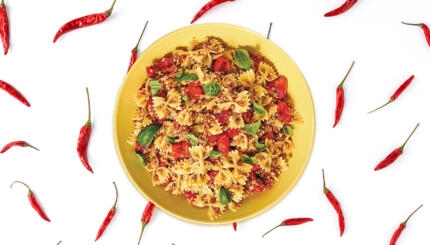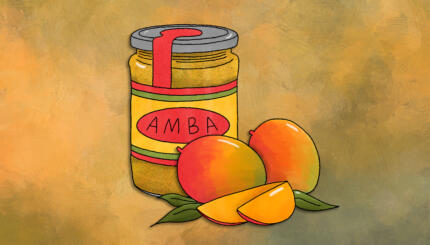On Rosh Hashanah, the new year begins. During the holiday, we ate apples and honey and put simanim – food puns, in Hebrew and English- on our tables: carrots to avert an evil decree, peas for peace. These foods are symbolic ways to bring sweetness in goodness into the year to come.
Symbols aren’t simply a fun ritual though. Like all ritual, they are a concrete way to remind us to do something. If we merely observe the forms, this year will not be a new year, it will simply be last year lived again. We will be caught and tangled in the same old ways of doing, the same sins, the same brokenness.
HaYom Harat Olam. Today is the birthday of the world.
For two days the world takes a breath, comes out still wet and shining, fresh as an egg.
For two days, we take a moment to observe, and what is broken is, for just a moment, whole.
But Rosh Hashanah is also the day of judgment. The Talmud tells us that each nation is paraded before God, with rulers in the lead, to be judged. We gather together for the comfort of community, in the hope that the goodness of our communities will protect us from our personal failings. But what about when it is the community whose flaws support those failings?
We gather together because, even though as Americans, we are taught to think that it is the individual that is most important. As Jews, we know that it is the community where power lies. It is the mores and rules of the people that we surround ourselves with that determine what we believe and how we act towards one another and towards the world. And so, as we stand before the Judge, those symbols are important.
The symbols of sweetness are a prayer for mercy. But symbols are no good if they are not filled by our actions. If we wish for sweetness, then we must, as a community, take those symbols and embody them through our actions. If we wish for sweetness, we must sweeten the world.
We live in a time of great crisis. As we look around ourselves, we see anger, violence, racism, hatred, genocide, contempt for the poor, putting blockages before the disabled. As a community, we have the power to address these wrongs. Not immediately, of course, and not all of them. But today, we can remind one another to welcome the stranger, regardless of whether it is a stranger to the shul or a stranger to our country. We can act to make that welcome a value of our wider society, and we can enshrine it in law.
Today, we can make sure that we ally ourselves as a community with the movements that are doing the work to make our society more just, and we can show up when they ask. We can remember that sweetness means that when we ask for mercy, the mercy cannot just be for us, and act in the knowledge that not everything is about us.
Today, we can offer forgiveness to those who have wronged us, or who we think have wronged us, and in doing so, ask them, how can we make your lives better. How can we acknowledge your humanity.
If we do that, then Hayom Harat Olam. Today is the birthday of the world.



